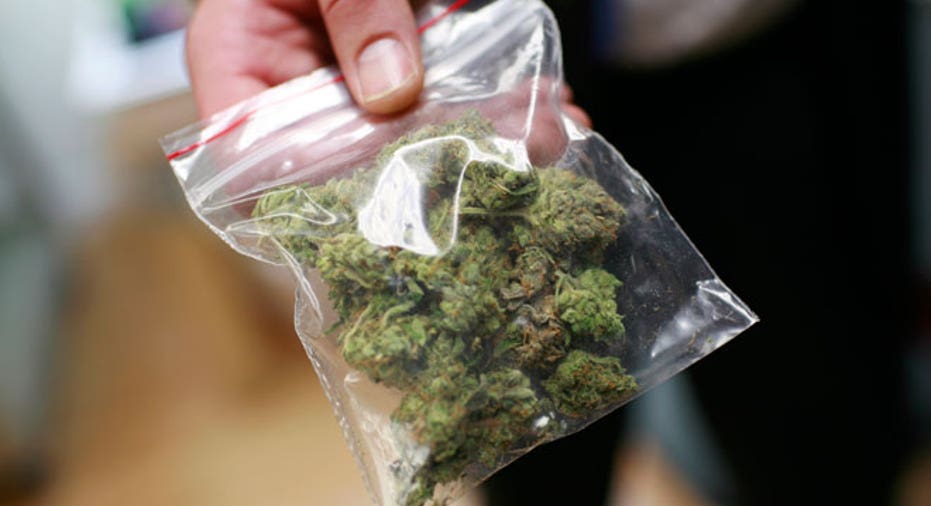Medical Marijuana: Evolution Revolution?

Scientists are trying to map the Cannabis genome to increase understanding of the versatile plant’s many mutations and hopefully improve medical and recreational, usage.
This is the marijuana version of the hugely influential Human Genome Project that identified the blueprint for humans and opened the doors to personalized medicine.
Phylos Bioscience is working on mapping the Cannabis genome; it is part of the Portland, Ore.-based company’s ambitious Cannabis Evolution Project.
The company wouldn’t disclose funding information except that to say it’s backed mostly by angel investors from the “traditional” biotech world.
Mowgli Holmes, co-founder and chief scientific officer at the privately-held firm did share details on the program, and the company’s progress, in an exclusive interview with Robert Gray for Fox Business…
FBN: What is the importance of mapping the Cannabis genome?
Holmes: “Mapping” a genome is kind of a vague idea to most people. The point is to figure out the sequence of the whole thing, read all the pieces, and get them all in order … the Cannabis genome is a nightmare compared to most of them. No two plants are alike. It’s very similar to humans in that way, actually.
FBN: Why did you need to do that?
Holmes: Really we just need it as a point of reference. It makes it way easier to do rapid sequencing on thousands of samples if you have a good reference genome to compare to.
We’re going to make it so people know what they’re getting (when they buy marijuana). This is a very big deal for recreational users, but it’s a much bigger deal for medical users. I think eventually work like ours will lead to new medicinal varieties, but that’s a ways out.
FBN: How are you getting samples when there are so many restrictions on Cannabis?
Holmes: We have our DNA extraction equipment set up in lots of local Cannabis testing labs that do state-mandated safety testing. They collect samples that come through and take the DNA for us. We have collectors all over the world donating samples.
FBN: Why is mapping a Cannabis genome so important for medical usage?
Holmes: Most Cannabis these days is close to 20% THC, with almost none of the other important medicinal compounds. The strain we're sequencing the entire genome of -- Canna-Tonic -- is about 8 percent THC and about 8 percent CBD—CBD is the most important medicinal component of the plant that we know about right now. It’s also known to decrease the anxiety that THC can cause. I really think plants like this are going to be important in the future, partly because they help with inflammation, pain, epilepsy, and probably a couple other things. But also because normal people can smoke them without going insane. My mom has been smoking this stuff. Your mom could probably smoke it.
FBN: How does Phylos make money?
Holmes: We sell genetic testing, just like 23andMe. So we work with local testing labs we’re partnered with, and they offer our services to growers, dispensaries, etc. We have a plant sex test that we’re already selling and we’re about to release a set of microbiology tests that are done using genetic analysis. Once we’ve done the evolution study, we’ll be able to tell people exactly what strain they have. You’d be surprised how much of a demand there is for that. People are obsessed with the different varieties, but no one ever really knows what they actually have.
FBN: Are you trying to keep marijuana “open sourced” and out of the hands of corporations who may seek to patent modified Cannabis?
Holmes: Actually we are. We’re giving all of our data to a group called the Open Cannabis Project that’s run by Cannabis activists, social justice activists, plant scientists, and even plant patent lawyers. The goal is to document the fact that everything that exists now is in the public domain. If they do that, then it becomes impossible for big companies to come in, rename existing varieties, and try to patent them.
FBN: How big can the Cannabis crop grow?
Holmes: I think by 2020 it will be the third largest agricultural industry in the US, behind corn and soybeans.
FBN: Any plans for an exit strategy, an IPO or selling the company to a bigger one?
Holmes: We don't want to grow into a company like Monsanto. And we don't want to sell out to a company like Monsanto either. What we want is to keep doing this work for as long as we can. There's a whole new breed of American farmer out there, and we need to make sure we have their backs.



















